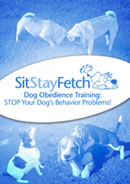Friday, October 31, 2008
Not Koge...but Happy Halloween
Saturday, October 25, 2008
Dog Food

Dog food is plant or animal material intended for consumption by dogs or other canines. Special types of dog food, given as a reward, and not as a staple, are known as dog treats.
Some people make their own dog food or feed their dogs meals made from ingredients purchased in grocery or health-food stores; many others rely on commercially manufactured dog food.
There are many different recommendations on what diet is best for dogs. Some people argue that dogs have thrived off of leftovers and scraps from their human owners for thousands of years and that commercial dog foods (which have only been available for the past century) contain poor-quality meats, additives, and other ingredients dogs should not ingest, or that commercial dog food is not nutritionally sufficient enough for their dogs.
www.dogfoodsecrets.info
Doggy Eyes
Monday, October 06, 2008
New book highlights hazards of commercial dog food

Monday, 6 October 2008
Author Andrew Lewis claims that commercial dog food is hazardous to pets.
Dog Food Secrets, the new dog food recipe book by author Andrew Lewis, featuring his alternative approach to feeding dogs, is now available online in e-book format.
Dog Food Secrets advocates a more balanced approach to dog food and includes home-cooked recipes which are cost efficient for owners and life-prolonging, claims Lewis.
Lewis, who wrote the book after the mysterious death of his dog, Noble, conducted research which showed that the large amount of preservatives regularly used by dog food companies in their products cause not only cancer but other deadly disorders. Furthermore, he claims that commercial dog food has also been found to contain the following:
• The processed faeces of other dead animals.
• Putrid road kill.
• The decaying carcasses of dogs, cats, and zoo animals.
• The deadly poison, Sodium Pentobarbital, used the euthanise the animals mentioned above by lethal injection.
• Pet collars, flea collars, ID tags and plastic bags.
One such preservative used in dog food is ethoxoquin, which is made by the company Monsanto. Despite being approved by the Food and Drug Administration (FDA), ethoxoquin is a toxic chemical that was initially used to preserve and stabilise rubber. It has been linked to stillborn puppies, birth defects, liver failure, cancer and infertility.
Ethoxoquin was initially permitted to be used in human food at a maximum rate of 0.5 parts-per-million (ppm), yet approved for pets at a rate of 150ppm. However, if other ingredients in the pet food have ethoxoquin in them, such as animal fat or products from a meat renderer, but the pet food manufacturer did not actually add the ethoxoquin themselves, then it does not have to be included on the label.
BHA (Butylated hydroxyanisole) and BHT (Butylated hydroxytoluene) are also used as preservatives. They affect the nervous system in animals, as well as their neurological development, and can also cause liver and kidney problems.
Dog Food Secrets is released under Dog Care Secrets, a Miami-based company. More information about Dog Food Secrets can be found here: www.dogfoodsecrets.info





